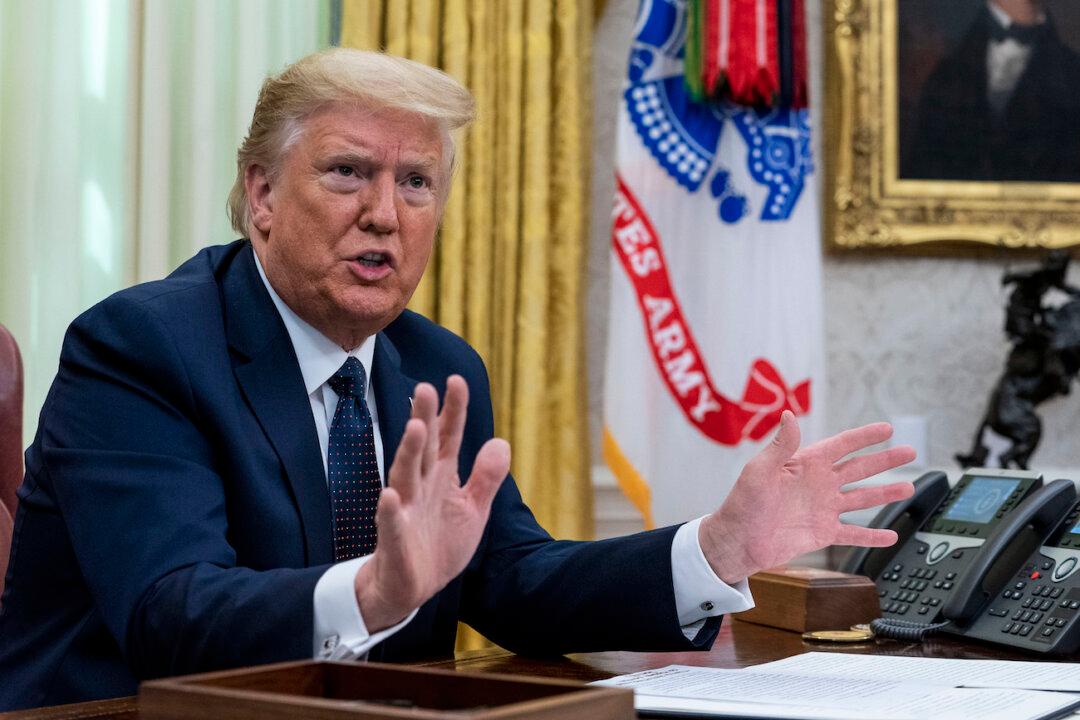Upon announcing an executive order on preventing online censorship on Thursday, President Donald Trump was asked why he would not simply walk away from Twitter given his concerns over the social media platform.
Trump responded that he would leave his Twitter account “in a heartbeat” if there were not “so much fake news,” and further explained to reporters why he continues to have a social media presence.




